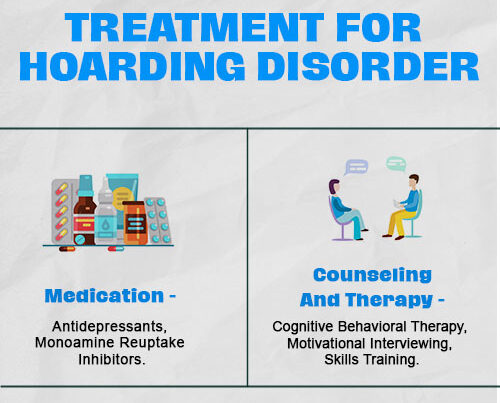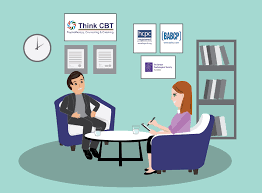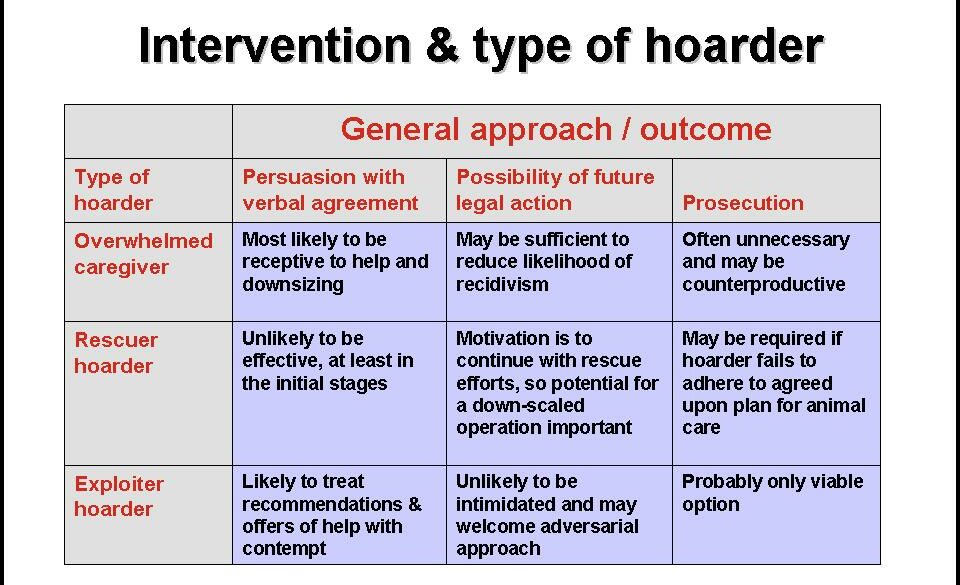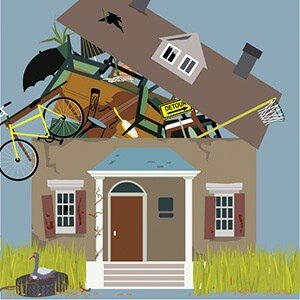If you are struggling with hoarding, know that you are not alone. Hoarding disorder is a very common problem, and there are many treatment options available. In this blog post, we will discuss the different therapies, medications, and self-help tips available for those affected by hoarding disorder. We hope that this information will help you find the treatment that best suits your needs!
Contents
Understanding Hoarding Disorder In Brief
Hoarding disorder is a persistent difficulty discarding or parting with possessions because of a perceived need to save them. A person with hoarding disorder experiences distresses at the thought of getting rid of their belongings.
Common Symptoms
The symptoms of hoarding disorder can vary in severity. Some people with the disorder may only have a few symptoms, while others may have many. The most common symptoms include:
- Excessive acquisition of items, even if they are not needed or cannot be used
- Difficulty getting rid of possessions, regardless of their value
- Feelings of distress or anxiety when parting with possessions
- Disorganization and clutter in the home or workplace
- Strong attachment to possessions
- Difficulty making decisions
Causes And Risk Factors
The exact cause of hoarding disorder is unknown. However, several factors may contribute to the development of the condition, including:
- Genetics: Hoarding disorder often runs in families, so there may be a genetic component.
- Brain abnormalities: Some research suggests that hoarding disorder may be associated with abnormalities in certain brain regions involved in decision making and emotion.
- Stressful life events: Traumatic or stressful life experiences, such as the death of a loved one, divorce, or losing one’s home, may trigger hoarding behavior.
Listing Treatment Options For Hoarding Disorder

There are several different treatment options available for hoarding disorder. The most common treatments include:
Therapies For Hoarding Disorder

Several different therapies can help treat hoarding disorder. The most common types of therapy are:
- Cognitive-behavioral therapy (CBT): CBT is a type of therapy that helps people to change their thoughts and behaviors. It is the most commonly used type of therapy for hoarding disorder and is effective.
- Exposure and response prevention (ERP): ERP is a type of CBT that involves exposure to the things that trigger hoarding behaviors, such as clutter or disorganization, followed by learning to resist the urge to hoard.
- Mindfulness-based therapy (MBT): MBT is a type of therapy that helps people to become more aware of their thoughts and feelings. It is effective in treating hoarding disorder.
- Skills training: Skills training is a type of therapy that teaches people with hoarding disorder how to manage their symptoms and live more productive lives.
Medications For Hoarding Disorder
There are no medications specifically approved by the FDA for the treatment of hoarding disorder. However, some medications may help treat associated symptoms, such as anxiety or depression.
- Selective serotonin reuptake inhibitors (SSRIs): SSRIs are a type of antidepressant that can help to reduce symptoms of anxiety and depression.
- Serotonin and norepinephrine reuptake inhibitors (SNRIs): SNRIs are a type of antidepressant that can help to reduce symptoms of anxiety and depression.
- Tricyclic antidepressants (TCAs): TCAs are a type of antidepressant that can help to reduce symptoms of anxiety and depression.
Managing Symptoms of Hoarding Disorder
There are several self-help tips and tools that can help people with hoarding disorder to manage their symptoms.
Self-help Tips For Hoarding Disorder
Some self-help tips include:
- Getting rid of clutter: One of the best ways to reduce hoarding behaviors is to get rid of clutter. This can be done by donating, selling, or throwing away items that are not needed.
- Organizing possessions: Organizing possessions can help to reduce feelings of anxiety and stress. This can be done by using storage containers, labeling items, and making sure everything has a place.
- Limiting acquisition: It is important to limit the number of new items that are brought into the home. This can be done by setting limits on shopping, only buying what is needed, and avoiding impulse purchases.
Self-help Tools For Hoarding Disorder
Several self-help tools can help manage hoarding disorder. These include:
- Hoarding scale: A hoarding scale is a tool that can help assess the severity of hoarding symptoms.
- Clutter Image Rating Scale: The Clutter Image Rating Scale is a tool that can help assess the amount of clutter in a person’s home.
- Hoarding Cleanup Checklist: The Hoarding Cleanup Checklist is a tool that can help people with hoarding disorder clean up their homes.
Preferring Therapy Over Self-help Tips

While self-help tips can help manage the symptoms of hoarding disorder, they are not a substitute for professional help. Therapy is the most effective treatment for hoarding disorder and can help people to make lasting changes in their thoughts and behaviors. Furthermore, it can provide the tools needed to manage symptoms and live a more productive life.
How Therapy Can Help You
Therapy can help you in several ways, including:
- Learning how to manage your symptoms: Therapy can teach you how to manage your symptoms and live a more productive life.
- Identifying and changing negative thought patterns: Therapy can help you to identify and change the negative thought patterns that contribute to hoarding behaviors.
- Learning how to let go of possessions: Therapy can teach you how to let go of possessions that you do not need anymore.
Why Choose Therapy Over Self-help Tips
There are several reasons why therapy may be preferable to self-help tips. These include:
- Therapy is more effective: Studies have shown that therapy is more effective than self-help in the treatment of hoarding disorder.
- It can provide customized help: Therapy can be tailored to your specific needs and goals.
- Therapy can provide support: Therapy can provide you with support and guidance from a trained professional.
NOTE: If you or someone you know is struggling with hoarding disorder, encourage them to seek professional help. Therapy can help them to understand the underlying causes of their disorder and learn new skills for managing their symptoms.
Encouraging Loved One For Therapy

If you have a loved one who is struggling with hoarding disorder, you may be wondering how you can encourage them to seek help.
Encourage them to seek professional help: Encourage your loved one to seek professional help from a therapist or counselor who specializes in treating hoarding disorder.
How To Initiate A Conversation
First of all, it is important to educate yourself about hoarding disorder so that you can understand what your loved one is going through. Here are some tips to initiate a conversation to talk to your loved one about therapy:
- Express your concerns in a non-judgmental way. You can say something like, “I’ve noticed that your home is very cluttered and I’m worried about you.”:
- Come to the point and do the talk. Talk to your loved ones about the benefits of therapy and how it can help them to manage their symptoms.
Tips To Help Them Through

If your loved one is resistant to the idea of therapy, there are several things you can do to help them. For instance:
- Offer to go with them to their first appointment: This can help to ease any anxiety they may be feeling. Let them know that you are there for them and that you want to help them get the treatment they need.
- Provide them with information about therapy: You can give them brochures or articles that explain how therapy can help people with hoarding disorder. Along with that, offer your support and understanding to your loved one.
- Encourage them to seek professional help: Encourage your loved one to seek professional help from a therapist or counselor who specializes in treating hoarding disorder.
- Encourage baby steps: Encourage your loved one to take small steps towards getting help. This could involve attending a support group or meeting with a therapist for an initial consultation.
- Be patient: Be patient with your loved ones and do not try to force them into getting help. Remember that this is a process and it may take some time for them to be ready to seek help.
Conclusion
Hoarding disorder is a serious condition that can cause a lot of distress and disruption in a person’s life. So, if you or someone you know is struggling with hoarding disorder, encourage them to seek professional help.
Since therapy can provide the tools needed to manage symptoms and live a more productive life. Furthermore, it can help people to understand the underlying causes of their disorder and make lasting changes in their thoughts and behaviors.
If you are looking for affordable Online OCD Counseling MantraCare can help: Book a trial OCD therapy session


